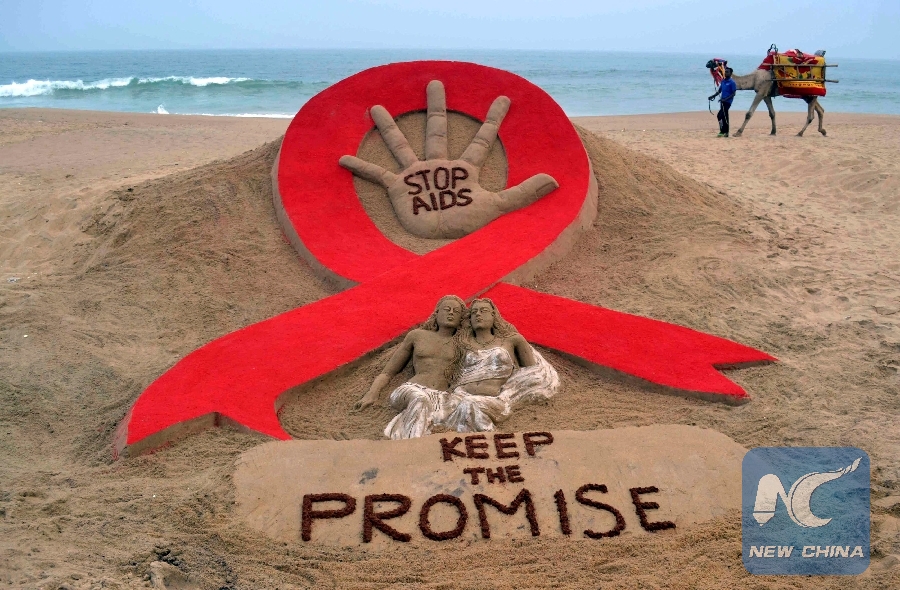
File Photo: A man walks a camel past a sand sculpture created by Indian sand artist Sudarshan Patnaik to create awareness about AIDS ahead of World AIDS Day on a beach in Puri, in the eastern Indian state of Odisha Nov. 29, 2013. (Xinhua/REUTERS)
UNITED NATIONS, Nov. 29 (Xinhua) -- Around 80 adolescents will be dying of AIDS every day by 2030 if "we don't accelerate progress in preventing transmission," the head of the United Nations Children's Fund (UNICEF) said on Thursday.
In a report released on Thursday, Children, HIV and AIDS: The World in 2030, current trends indicate AIDS-related deaths and new infections are slowing, but the downward trajectory is not happening fast enough.
"The report makes it clear, without the shadow of a doubt, that the world is off track when it comes to ending AIDS among children and adolescents by 2030," said UNICEF chief Henrietta Fore.
The end of AIDS is an ambitious goal envisioned by the UN agency coalition established to tackle the epidemic, known as the UNAIDS Fast-Track strategy.
More than half of those children known to be dying of AIDS won't reach the age of five, the report reveals.
Prevention and infection treatment efforts, Fore noted, are still missing the mark, specifically when it comes to "HIV transmission from mothers to babies."
"Programs to treat the virus and prevent it from spreading among older children are nowhere near where they should be," she added.
The number of mother-to-child infections have fallen by around 40 percent in the last eight years, but girls still account for two-thirds of all adolescent HIV infections, and rates of infection among older children are the slowest to decline, according to current data.
Furthermore, the report cites a global target reduction in the number of HIV-infected children by 2030 to 1.4 million, saying the projected number today of 1.9 million shows that the world is off-track by around 500,000.
Currently, 3 million persons aged 19 years and younger are infected with HIV worldwide.
Two million new infections could be averted by 2030, if global targets are met - this means providing adequate access to HIV prevention, care and treatment services, and testing and diagnoses.
The major shortfalls show slow progress in prevention among the young, and a failure to address the key drivers of the epidemic. Many infected children and adolescents are unaware of their illness, and even when tested HIV-positive, rarely adhere to proper treatment.
The UNICEF vision for an AIDS-free generation entails upscaling family-centered testing to help identify children living with HIV who have not been diagnosed, and greater use of digital platforms to improve education when it comes to HIV contraction and prevention.
"We can't win the fight against HIV if we don't accelerate progress in preventing transmission to the next generation," said Fore.

